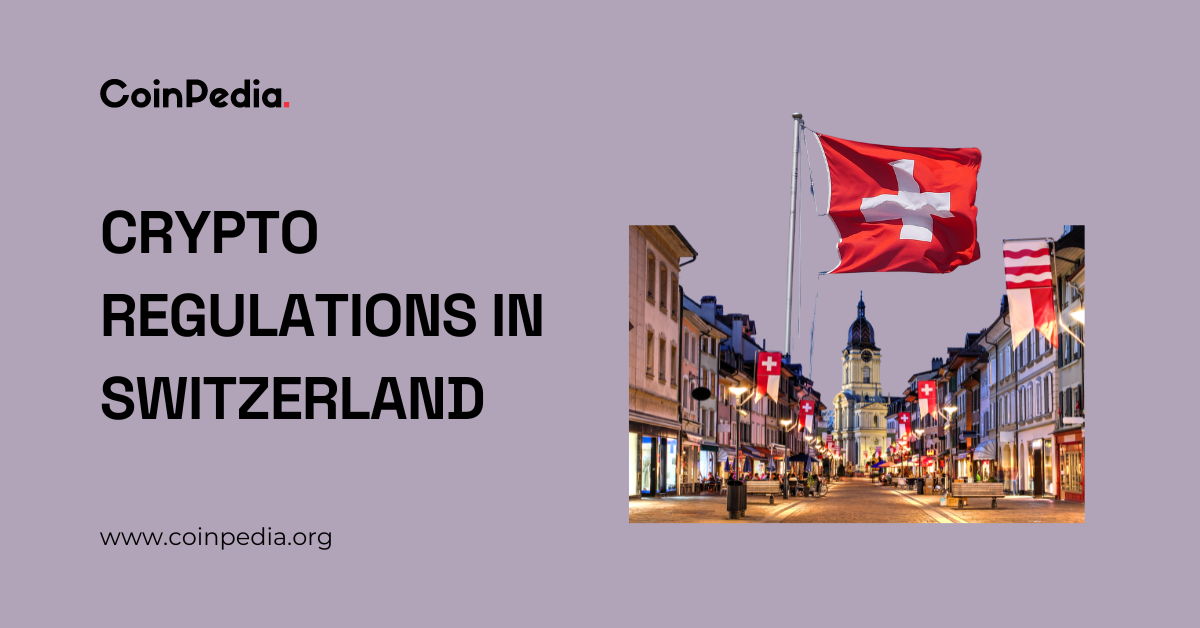Known for its strong economy and beautiful scenery, Switzerland is also a major player in the world of financial technology. The country has embraced cryptocurrency and has become one of the most crypto-friendly places in Europe. Since 2016, Switzerland has been creating a supportive environment for blockchain and cryptocurrency businesses, making it a key destination for these industries. The country’s regulatory framework is unique and helps facilitate the use of cryptocurrencies for financial transactions.
Let’s explore how Switzerland’s approach to crypto regulation is setting a global standard for growth and stability.
1. Overview of Crypto Regulation in Switzerland
In Switzerland, cryptocurrencies are treated as an asset class and are regulated by the Swiss Financial Market Supervisory Authority (FINMA). FINMA is responsible for issuing four types of crypto licenses: fintech, exchange, investment fund and banking. This ensures that companies follow the country’s Anti-Money Laundering Act. Recently, new guidelines were introduced to strengthen the regulation of crypto exchanges and digital asset services, based on recommendations from the Financial Action Task Force (FATF). Switzerland has attracted more than 1,000 blockchain and crypto businesses, and a key development in this area was the introduction of the ‘Blockchain Law’.
1.1. The Swiss Blockchain Law: What is it?
The ‘Swiss Blockchain Act’ includes updated laws that provide detailed legal regulations for blockchain-based businesses. It improves investor protection by differentiating crypto-assets and provides more legal clarity in situations such as bankruptcy. The law also upholds Switzerland’s principle of technology neutrality and introduces a new license category for trading systems based on Distributed Ledger Technology. In addition, it explains how crypto-assets are taxed.
1.2. Swiss Crypto Valley: Does It Exist?
You may have heard that Switzerland is home to many crypto leaders. Is it true? The story of Zug, often called the Swiss Crypto Valley, will convince you.
Zug has become an important hub for cryptocurrency companies since Johann Gevers Monetas moved there in 2013. The term ‘Crypto Valley’ was first used in 2014 by Mihai Alisie during Ethereum Foundation discussions. By 2017, Zug had attracted more than 40 crypto foundations. Local government support, including easier registration processes, acceptance of Bitcoin for services, and assistance with visa applications, contributed to this success. Zug’s success is due to a mix of business-friendly laws, a strategic location and favorable tax rates.
2. Crypto regulation in Switzerland: What’s new
December 11, 2023: Lugano began accepting Bitcoin and Tether for municipal payments.
January 23, 2024: FINMA approved a retail trading platform for tokenized securities and digital assets. It extended Taurus’ TDX platform to retail investors.
February 20, 2024: Geneva-based Tyr Capital Partners faced a raid by Swiss prosecutors over allegations of criminal mismanagement.
May 16, 2024: The Swiss Federal Council proposed to adopt the Crypto-Asset Reporting Framework (CARF) for better tax transparency.
May 30, 2024: At the London Blockchain Conference, the Swiss Metaverse Association launched its Regulatory Position document. It argued for positive global metaverse regulations.
3. Crypto tax in Switzerland
In Switzerland, cryptocurrencies are considered legal tender like the Swiss franc (CHF) rather than assets. Here is a look at the taxes involved:
Capital Gains Tax: Private investors generally do not pay tax on gains from cryptocurrency ownership and sales. However, commercial traders and businesses where crypto trading is a primary source of income have capital gains tax (CGT) up to 7.8%, plus around 10% for old age and survivor insurance.
Wealth Tax: Cryptocurrencies are subject to wealth tax if the total value of your assets exceeds the personal exemption limit on December 31.
Income tax: Income from cryptocurrencies—such as salaries, payments, mining, staking, or airdrops—is taxed. This income is converted into Swiss francs when received, and the progressive federal, cantonal and municipal tax rates apply. Rates vary by location and income level.
4. Crypto Mining in Switzerland: Key Points
Crypto mining is allowed in Switzerland, but how it is categorized may vary by region. In Bern and Zurich, mining is considered self-employment, while Lucerne and Zug prefer to assess mining activities individually. Depending on how it is classified, mining can be considered a hobby, self-employment or a business, which affects tax implications accordingly.
5. Timeline of Crypto Regulation in Switzerland
2013: Johann Gevers moved his crypto startup Monetas to Zug. This marked the formation of Crypto Valley.
2014: Zurich set up the country’s first Bitcoin ATM.
2016: Switzerland began promoting cryptocurrencies for financial payments. Zug Accepted Bitcoin Payment for Board Services.
2016: FATF recognized Switzerland’s AMLA framework for the prevention of illicit financing.
2018: Swiss Minister of Economy revealed his goal to position Switzerland as a “Crypto Nation”.
2018: FINMA released ICO guidelines adapting financial laws to cryptocurrencies. The guidelines covered banking, securities, trading and investment schemes.
2019: FINMA’s ICO guidelines clarified the regulatory stance on stablecoins.
2020: Swiss parliament approved holistic regulations for blockchain businesses.
2021: The Blockchain Act is enacted, providing a legal basis for the trading of cryptos.
2021: FINMA approved the first crypto fund, the Crypto Market Index Fund.
2023: FATF enhanced regulations for crypto oversight entered into force.
End note
Switzerland is a world leader in crypto regulation, setting a high standard for other countries to follow. Its innovative regulatory framework shows how fintech can drive economic growth. The country’s ongoing updates to its crypto regulations underscore its commitment to promoting the digital finance sector. Switzerland’s approach demonstrates how positive and forward-thinking regulation can create a user-friendly, safe and secure crypto environment.
As Switzerland continues to lead, it remains the prime example of effective regulation.
See also: Crypto regulations in the Netherlands 2024
Disclaimer for Uncirculars, with a Touch of Personality:
While we love diving into the exciting world of crypto here at Uncirculars, remember that this post, and all our content, is purely for your information and exploration. Think of it as your crypto compass, pointing you in the right direction to do your own research and make informed decisions.
No legal, tax, investment, or financial advice should be inferred from these pixels. We’re not fortune tellers or stockbrokers, just passionate crypto enthusiasts sharing our knowledge.
And just like that rollercoaster ride in your favorite DeFi protocol, past performance isn’t a guarantee of future thrills. The value of crypto assets can be as unpredictable as a moon landing, so buckle up and do your due diligence before taking the plunge.
Ultimately, any crypto adventure you embark on is yours alone. We’re just happy to be your crypto companion, cheering you on from the sidelines (and maybe sharing some snacks along the way). So research, explore, and remember, with a little knowledge and a lot of curiosity, you can navigate the crypto cosmos like a pro!
UnCirculars – Cutting through the noise, delivering unbiased crypto news







